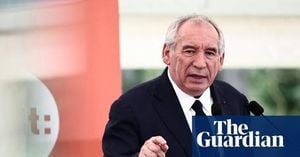The debate surrounding Medicaid funding cuts has taken center stage, particularly for rural America, where access to healthcare is already strained. A report issued by Georgetown University’s Center for Children and Families highlights intensive reliance on Medicaid among rural and small-town residents, which risks exacerbation if Congress proceeds with planned reductions.
With over 79 million individuals enrolled, per recent figures, Medicaid serves as the backbone of healthcare for low-income families across the United States. The rapid growth of enrollment, reflecting both the economic environment and the continuous public health challenges, places heightened concern on how proposed congressional cuts could harm rural healthcare systems.
Joan Alker, executive director of the Georgetown Center, emphasized during a press briefing how detrimental drastic cuts could be, particularly for communities already vulnerable due to existing health disparities. "Rural communities are at grave risk if substantial federal cuts are enacted," she warned, following discussions among House Republicans about reducing Medicaid funding by up to $2.3 trillion.
What’s alarming is the degree to which rural areas depend on Medicaid compared to urban settings. The report indicates Medicare enrollment rates were either equal to or exceeded urban areas' enrollment levels across 40 out of 48 states. For example, among children covered by CHIP, over half of those living in rural locations are enrolled, as reported from federal census data.
Currently, rural populations face numerous health care challenges. Limited healthcare resources on the ground, higher distances to healthcare facilities, and inadequate internet connectivity all contribute to poorer health outcomes compared to urban centers. Alker noted, "Medicaid is protecting families and people from exposure to high medical costs ... Cuts to Medicaid ... will result in transferring costs to families and providers cutting services." This risk is particularly high for maternal and child health services—vital components of rural healthcare networks.
Additional challenges were highlighted during the briefing where Katy B. Kozhimannil, health policy researcher at the University of Minnesota, pointed out the erosion of obstetric services across rural areas. Considering the significant closures of hospitals offering prenatal care, rural areas are at risk of falling even farther behind with additional losses of resources from proposed cuts.
Looking closer at the ramifications, Benjamin Anderson, CEO of Hutchinson Regional Medical Center in Kansas, shared how their healthcare system relies heavily on Medicaid funding to sustain operations. He narrated the case of an infant requiring extensive neonatal care due to the lack of prenatal services—a situation directly connected to Medicaid coverage.
With the recent freeze on financial assistance programs, including Medicaid, the system faces unprecedented uncertainty. The Biden administration's handling of these pressures will be pivotal. Health experts stress the importance of preserving and potentially enhancing Medicaid to safeguard vulnerable populations.
Given the stakes involved, the conversation surrounding Medicaid cuts extends beyond mere figures—it touches the lives of the millions who depend on it for basic health services. The potential impact of proposed changes is likely to resonate through rural communities already grappling with healthcare access and affordability.
Now, as Congress weighs its financial options, advocates plead for consideration of the potential effects on those reliant on Medicaid, particularly children and rural families, emphasizing the urgent need to sustain and build upon the existing healthcare framework rather than dismantle it. With so much at risk, it becomes imperative to prioritize healthcare accessibility for all American citizens, regardless of where they live.



